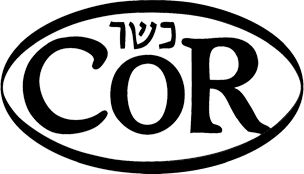A Toronto-area flour company has been ordered to pay $25,000 for misrepresenting a cake mix as kosher, after an Ontario court said the move could cause “spiritual trauma” to religious Jewish consumers who purchased the product.
A small-claims court found that Adee Flour Mills breached its contract with the Kashruth Council of Canada by misusing its logo on a devil’s food cake mix that was not, in fact, certified as kosher, the Toronto Sun reported.
The Kashrus organization is based in Toronto and is widely known as COR, which stands for Council of Orthodox Rabbis. It is the largest of three main Canadian kosher certification agencies.
“The kosher Jewish community takes their dietary habits extremely seriously, and thus have placed enormous trust on the (Kashruth Council of Canada) to maintain high standards of control,” wrote Small Claims Court Deputy Judge Lai-King Hum. Eating non-kosher food is a “severe transgression,” she found, and “failure to adhere to a kosher diet could foreseeably result in spiritual trauma.”
For Adee Flour Mills to misuse the kosher logo to sell non-kosher Devil’s Food cake mix, then, was “highly reprehensible,” and deserving of punitive damages over and above the damages for trademark infringement and breach of contract, she said, ordering a $20,000 fine for the breach and the harm it caused to the council’s reputation, as well as $5,000 in punitive damages for the potential harm to consumers.
The deputy judge did not, however, order the company to stop selling the products and pull them from stores, saying such orders are outside the small-claims court’s jurisdiction

Richard Rabkin, the Kashruth Council’s managing director, is also a lawyer and filed the case himself, on the basis of trademark infringement about the council’s logo and a violation of the contract between the council and the food producers it certifies.
Rabkin said the organization has reached out to others in the kosher community to alert them of the issue with the product.
Documents shows Adee was granted kosher certification in May 2016 but it was revoked more than a year later after the company failed to pay the annual certification fee, despite several calls and emails from the council.
The small claims court legal action began earlier this year, when one of the council’s rabbis found an Easy Bake Devil’s Food Cake mix bearing the kosher certification logo during a routine inspection at a factory store, the decision said.
Additionally, the package was labelled “kosher pareve” while it contained dairy content.

An image of the Devil’s Food cake on the company’s website still displays the COR kosher symbol, as does the packaging for oatmeal cookies, chocolate fudge brownies, scones, pancakes and other products.
It’s not the first time a company has been accused of trying to pass off products as kosher.
Creation Foods Co., a Toronto-area food manufacturer and distributor was charged in 2017 after allegedly forging documents to knowingly sell non-kosher cheddar cheese to Jewish summer camps in the summer of 2015, and was also fined $25,000.
(Nat Golden – YWN)












7 Responses
Interesting, who do they pay the religious trauma money to?
The Moral: Beware ‘Devil’s Food’ masquerading as “kosher” -!
And who gets the 25k?
25k is pennies. They made more than that by faking out the kosher symbol. It hasn’t deterred them in the past. Why would it deter them in the future?
Kollelman is correct. $25K is going to deter them?
Why was this lodged in the small claims?
The thing I found amazing about this was that the company was willing to stake their reputation on a false PARVE kosher symbol when in fact THERE WAS DAIRY IN THE PRODUCT.
Just for that alone, they should have not been stupid and they should have just taken off the kosher symbol. They could have had a major lawsuit on their hands if somebody who was allergic to dairy would have eaten the product based on the fact that they saw the false PARVE of on the label.
1. They pay it to the COR.
2. There is no way they made anything like a $25K profit from the false claim.
3. Anyone allergic to milk has no business relying on a “Pareve” designation. Pareve products can easily contain traces of milk. It is the allergic consumer’s responsibility to look at the ingredient list and the allergen declaration, and of course there he would see clearly that it contains milk.